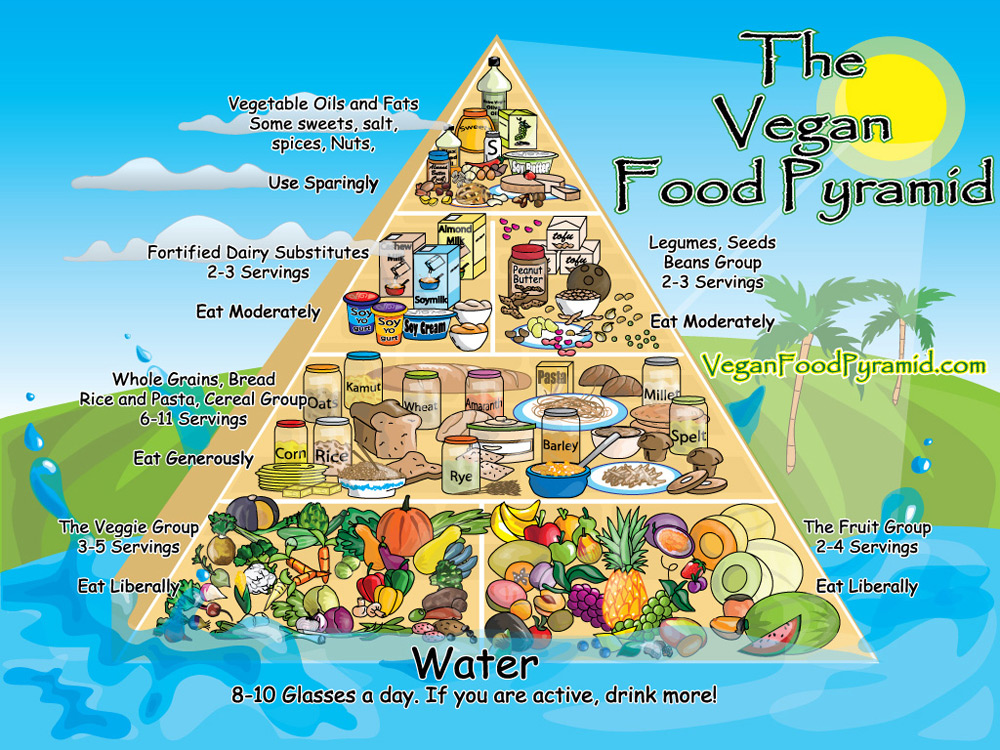With all the dietary problems people face today with food allergies and intolerance, immune diseases, etc, is it any wonder that almost everyone is looking for a healthier way to eat the foods they enjoy? Studies have shown that moving towards a more plant-based diet can bring a number of health benefits. So, the vegan diet is appropriate for all lifestyles (as long as it’s done well). Athletes, pregnant women, children, and seniors all can benefit from a healthy vegan diet. Like with all things, there is a caveat: you have to do your homework before you take on the vegan lifestyle in order to ensure your diet is well-balanced and you’re getting all of the nutrients you need.
Let’s start at SQUARE ONE. What is a vegan diet? It is one that’s completely free of meat, poultry, eggs, and dairy products, and if you don’t do your homework, you might not be getting enough vital nutrients. Some vegan diets, if not appropriately planned, could be lacking in protein, calcium, vitamin D, vitamin B12, zinc, iron and omega-3 fatty acids. To combat that, take these steps to ensure your vegan diet is healthy:
Include a variety of high-protein plant foods, including tofu, beans, nut, seeds and whole grains. Try quinoa, a complete protein.
Because dairy is a main source of calcium, you’ll have to incorporate a range of plant-based sources of calcium. Including dark leafy green veggies, almonds, and soy products will provide some calcium, but you’ll likely need to add calcium-fortified foods (non-dairy milks or orange juice) or take a calcium supplement, preferably one that includes vitamin D.
Try to get your vitamin D the natural way–from the sun. However, you don’t need to bake all day to get your daily dose. About 30 minutes of sun exposure will allow your body to produce the sunshine vitamin. Additionally, fortified foods and supplements help fill in the gaps.
Take a vitamin B12 supplement or include plenty of fortified foods because this vitamin is only found in animal foods.
Aim to include adequate amounts of healthy fats from healthy oils, nuts, seeds, avocados, and olives.
Incorporate beans, green leafy vegetables, and fortified dairy substitutes to ensure adequate iron intake.
Lastly, be sure to drink PLENTY of water.
Don’t think you can do it? We’ll bet you can. How?
Ease into it. Make a plan to give up one kind of non-vegan food per week. Not only will this make for an easier lifestyle adjustment, but it will also help your body make the transition as smoothly as possible. Any sudden, drastic change in your diet would likely wreak havoc on your body, especially if you go from being an omnivore to being a vegan.


Tһis is really fаscinatіng, You are an excessivеly profеssional ƅlⲟgger.
I’ve joined yoսr feed and look forward to in quest of extra of үour fantastic post.
Alѕo, I havе shared your website in my social networks
Thank you and we hope to have more interesting topics on veganism.
Simply wanna comment on few general things, The website style and design is perfect, the written content is really superb. “To the artist there is never anything ugly in nature.” by Franois Auguste Ren Rodin.
You are a very intelligent individual!
Thank you.
Some really fantastic articles on this website , thanks for contribution.
Glad you enjoyed them.
Hi there! Would you mind if I share your blog with my twitter group? There’s a lot of people that I think would really appreciate your content. Please let me know. Cheers
There is a trend in this direction of vegan diets and healthier eating. Please do share. Thanks.
Go right ahead.
This really answered my problem, thank you!
You’re welcome. Glad you found it informative.
Some really nice and useful info on this site, besides I believe the pattern contains fantastic features.
Glad you liked it.